Achieving a hair care routine when you've got naturally curly hair is hard work. As well as nailing theshampoo routine (washing curly hair is basically a full-time job), there's also deep conditioning, hair oils and the mammoth task of gently trying to detangle the hair.
Why is it that curly hair is so prone to tangling? And what can we do to prevent it getting so bad? We all know curly hair can be so temperamental - curls can go from defined, silky and springy to tangled in no time at all - but how do we avoid a matted mane?
Luckily for you, we spoke to the experts to get to the root (geddit) about detangling curly hair and what methods and products will help you along the way. Thank us later.
Why does curly hair get so tangled?
"The main reason why curly hair gets so tangled is that it is more porous. This means that the hair does not retain as much moisture, which in turn can lead to it becoming more dry, matted and tangled." Bruno Marc, Award Winning Hairdresser, Director and Founder of TAOH haircare, explains.
"With that in mind, those with curly hair should be trying to retain the moisture in their hair as much as possible, particularly by using good quality salon professional hair care ranges. Everyone, but those with curly hair types in particular, should also rotate their conditioner once to twice per week with a hair mask that will give their hair more intense moisture. This will further help to detangle your hair and avoid it from becoming dry. Curly hair types are also more prone to frizz and using a hair mask will help keep frizz at bay and hair feeling smooth and silky."
There is also a whole load of science behind why curly hair get tangled. Jonathan Andrew, Fudge Professional Global Ambassador, reveals, "Curly hair grows out at an angle from the follicle, which means the hair that is coming through is moved around creating a curly texture and the angle of this can vary creating tighter curls or softer curls.
"Curly hair is notoriously dryer/frizzier than hair that grows straight. The reason? Your body naturally produces oily from your scalp and that oil is designed to travel down the shaft of your hair for whole length to nourish and protect your hair. This is important because that is what keeps your hair healthy and shiny, sometimes this can be affected by colour, heat styling and free radicals in the atmosphere. Curly hair creates a break in the cuticle that then prevents the oil from travelling. This happens more in curly hair because the oil can’t travel in a straight line and is a longer journey for the oil to cover all the hair which means it tends to build up in certain areas by not adding in moisture to the hair."
Makes sense when you put it like that, right? Invest in a great hair mask, like Palmer's Olive Oil Formula Deep Conditioner, £2.49, that works wonders on frizz and is sulphate free.
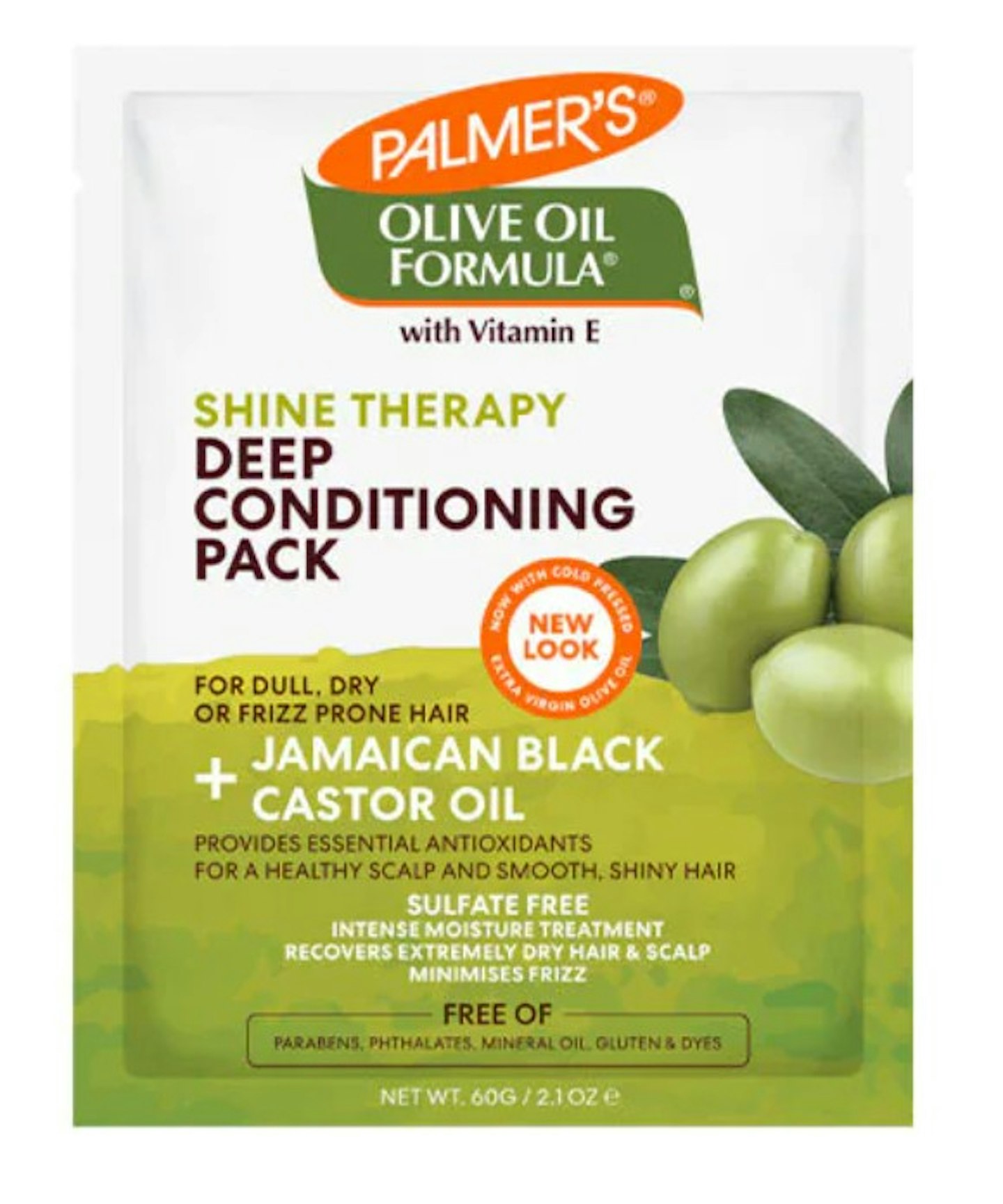 Palmer's
Palmer'swww.superdrug.com
How to detangle hair
Now we know why curly hair is prone to tangling, let's ask the experts about the best way to detangle hair, because we all know deep down the best way to detangle hair isn't just to brush through it with force (ow!) or leave it until it gets worse.
Duck & Dry CEO, Yulia Rorstrom, explains, "You can only damage your curls by brushing if you don't do it correctly. Avoid brushing curls while they're dry as you can cause breakage and ruin the curl pattern, it's important to make sure your hair is conditioned and nourished before brushing in downward motions.
"No matter what product you use on your curls, try to look for ingredients such as shea butter or essential oils which will inject moisturise into your hair and make it easier for your comb to glide through without damaging it."
Headmasters creative ambassador and curl and texture educator Danielle Louis, tells heat, "When styling textured and curly hair avoid brushing curls when the hair is in a dry state.
"Textured Hair is best detangled when it is wet, as it is at its most delicate state it is best to be gentle especially when detangling hair using a manta brush to help the brush to move with the direction of the hair instead of tugging at knots. To prevent tangles and detangles make sure the hair is moisturised. Using products such as a deep conditioning masque this helps to rebuilds the health of your hair by penetrating deeper.
"Also, whilst drying your hair avoid touching or scrunching it too much as this will cause frizz and break up the curl pattern. Avoid rubbing your hair with a towel as this will create frizz and tangles."
Lizzie Carter, Founder of Only Curls, also shares her top tips, "Best practice is to detail using lots of conditioner along with fingers/or a wide tooth comb during the wash process. Some curlies will then move straight onto styling after rinsing out the conditioner, others like to further detangle as they apply leave in conditioner. The latter method also result in very even product application.
"To keep things under control, it’s a good idea to refresh your curls between washes. To do this spritz the hair with water using a misting bottle. The water will help reactivate the products already on your hair. You can then gently detangle any curl clumps, and scrunch in a little more styling product to help redefine and hydrate the curls. Our Enhancing Curl Gel is light and is perfect for refreshing."
Jennifer Hirsch, aka The Beauty Botanist, has shared her detangling routine. "I hear the lyrics for The Perfect Nanny from Mary Poppins in my head when it comes to detangling and brushing curls," she says.
-
Always with patience, consideration and a light touch
-
Never comb or brush dry, but always wet and with a product - a conditioner or a mask like the new Noughty Wave Curl Butter 3-in-1 Treatment (£9.99) is ideal for creating detangling slip
-
Use a wide toothed comb or a wide bristle brush to tease tangles out, working from tip to root
-
Being wet helps to reduce the risk of splits, snaps and breaks
-
Section your hair to make the job manageable and make sure you get every tangle
-
Be gentle
-
Don’t rush
-
After adding leave in treatments or stylers, help hair regain curl pattern by plopping and/or tipping head upside down and scrunching hair toward scalp in loose sections with your fingers
Best products to help detangle curly hair
Learning to brush your curly hair the right way is a great step to getting rid of the tangles, as is investing in an amazing conditioning mask.
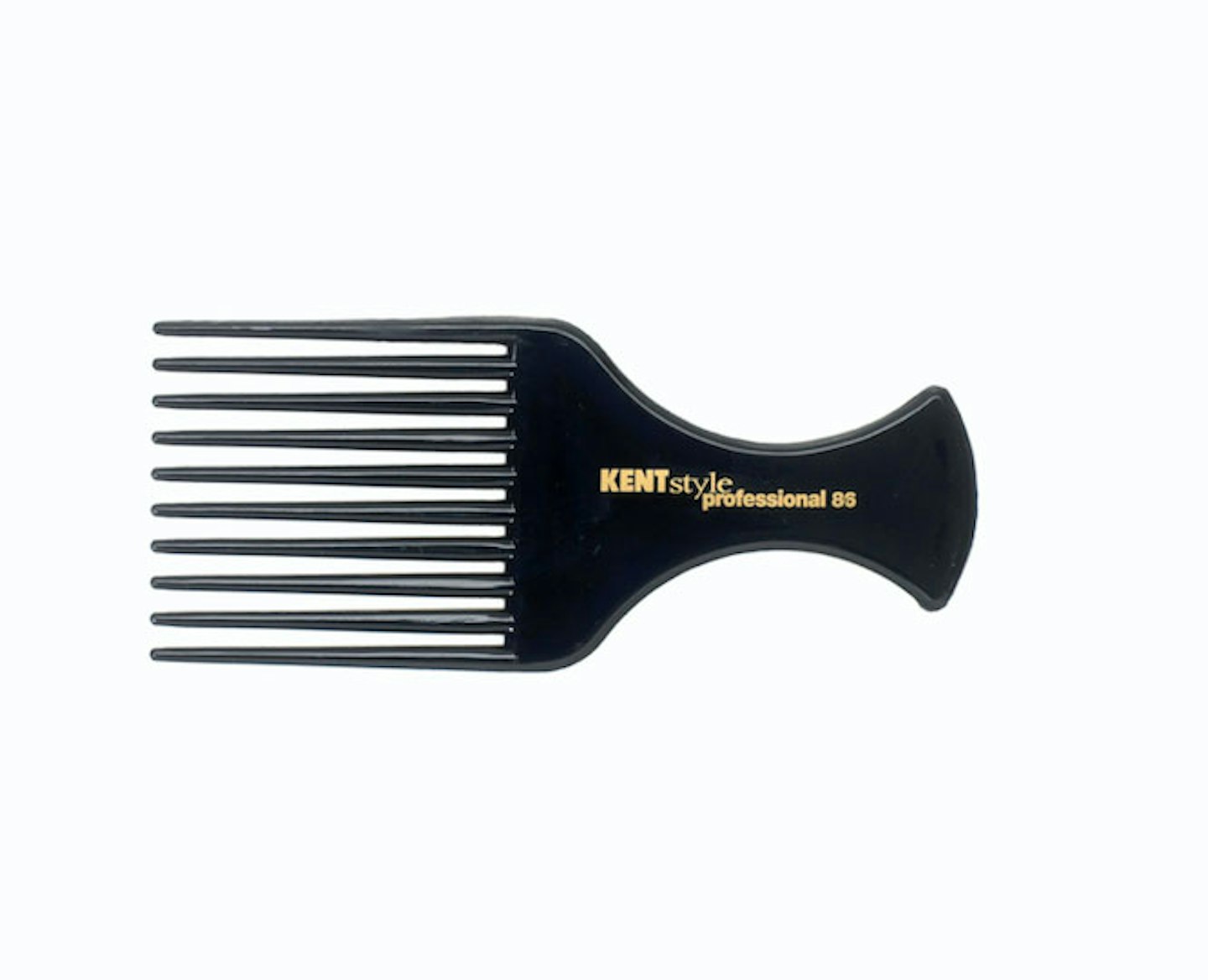 Kent Style
Kent Stylekentbrushes.com
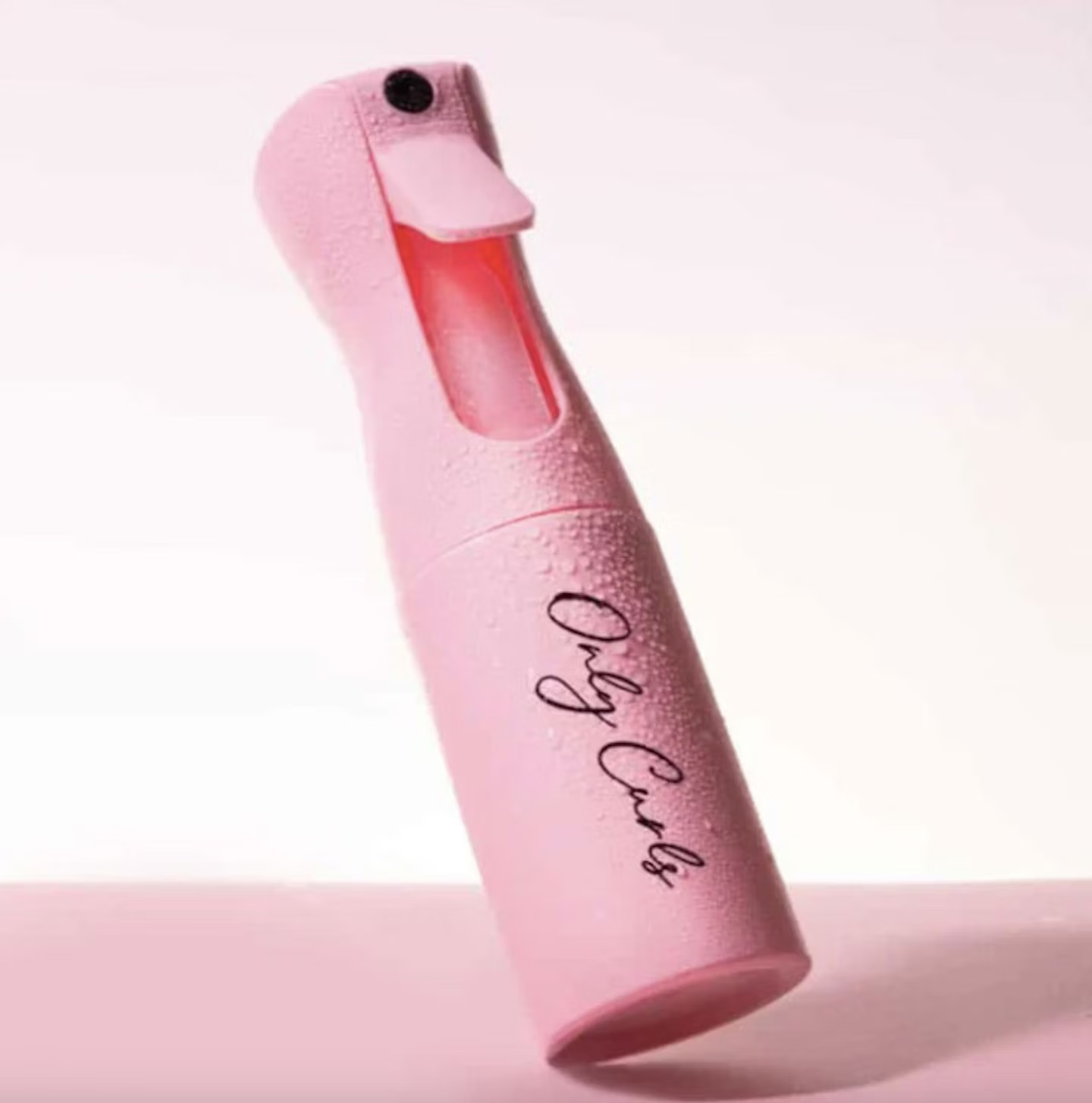 OnlyCurls
OnlyCurlsonlycurls.com
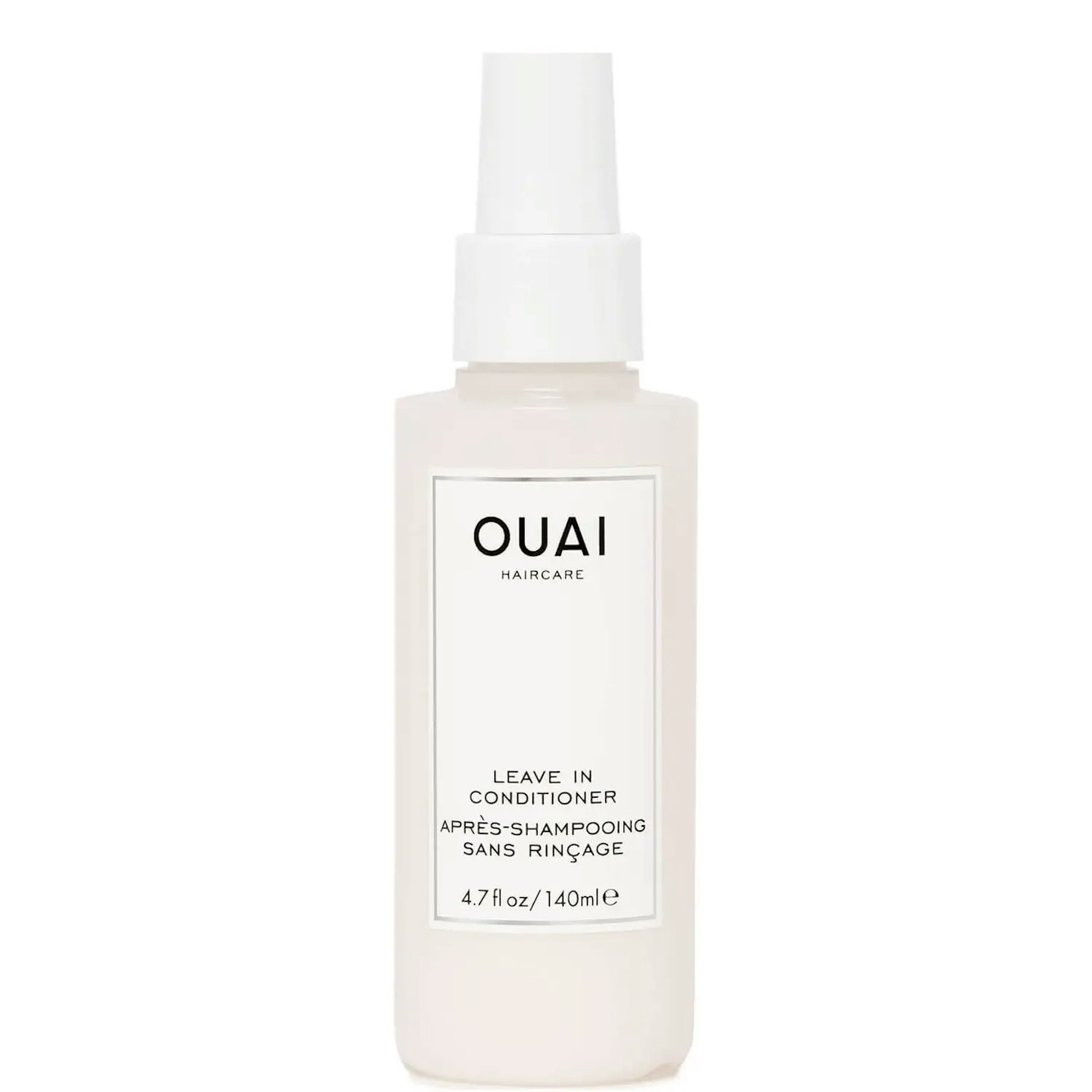 OUAI
OUAI www.lookfantastic.com
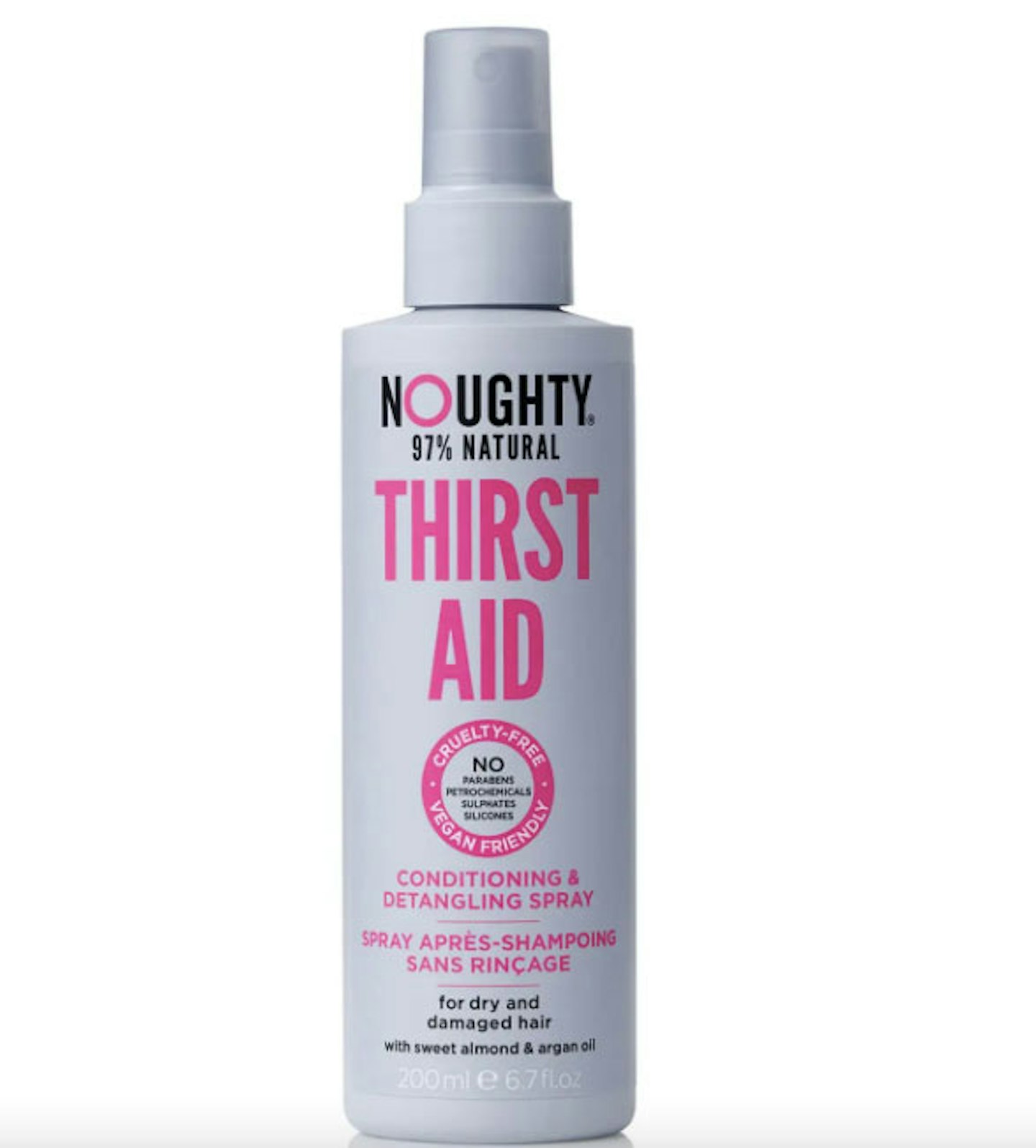 Noughty
Noughty www.lookfantastic.com
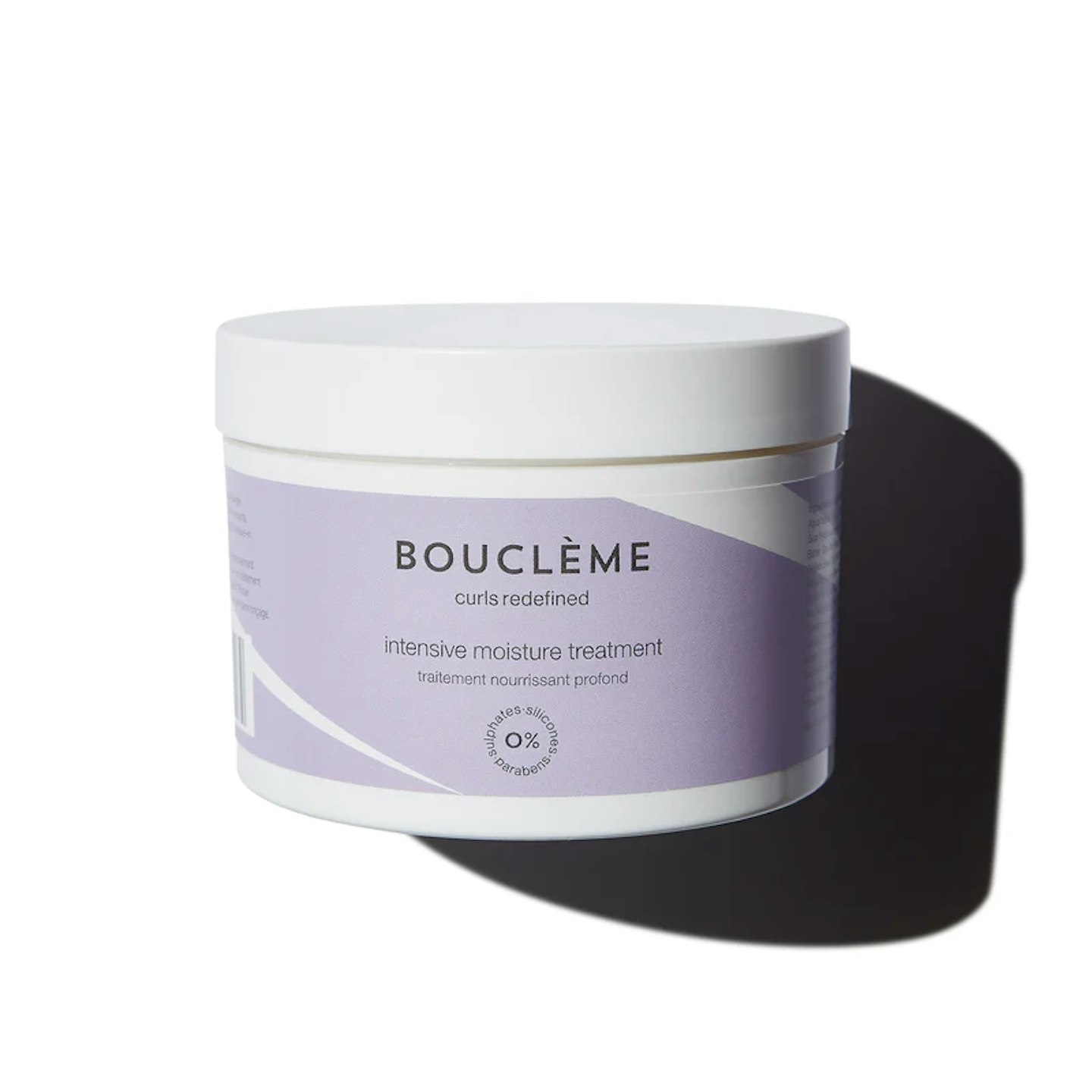 Bouclème
Bouclème www.boucleme.co.uk
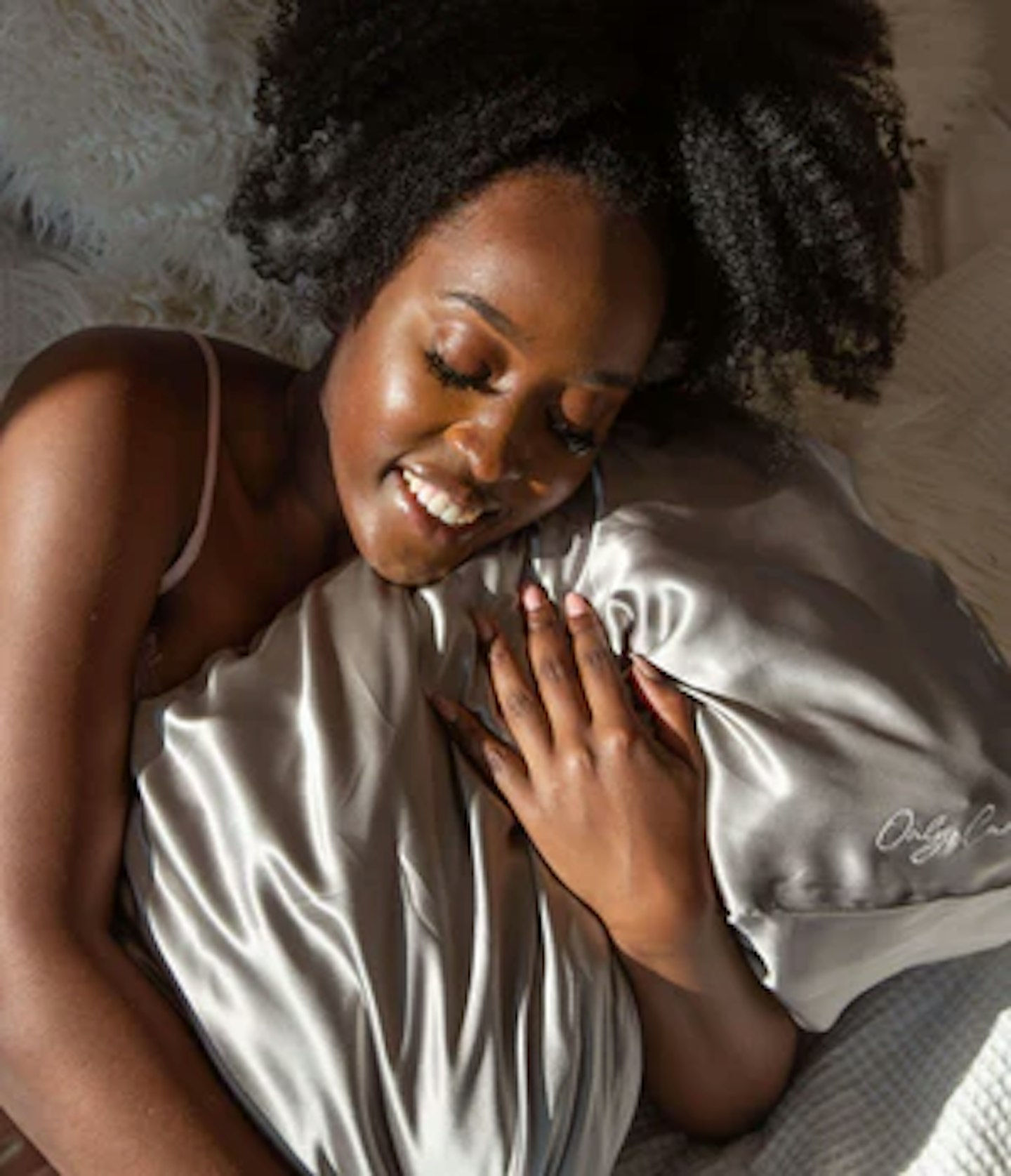 Only Curls
Only Curlsonlycurls.com
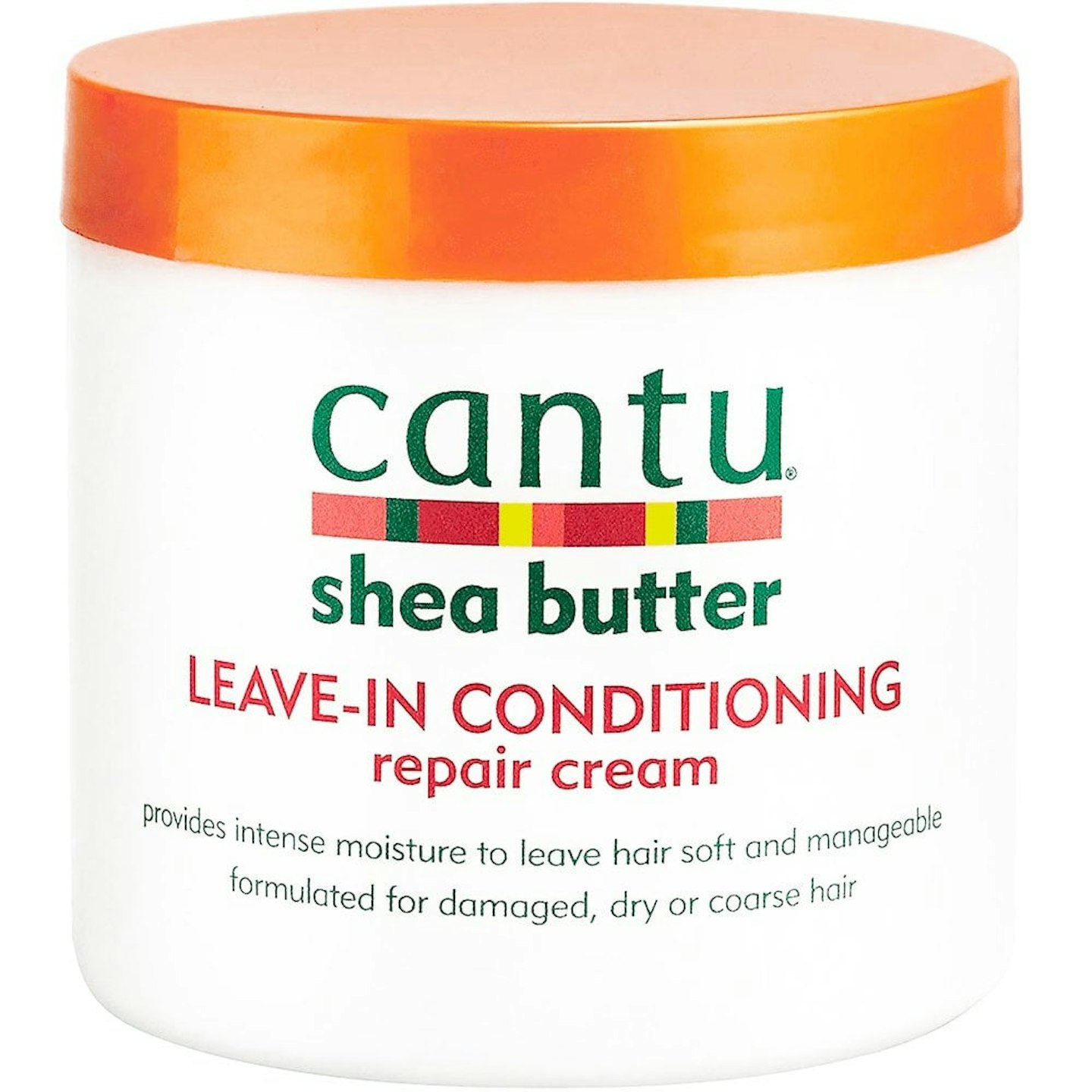
www.boots.com
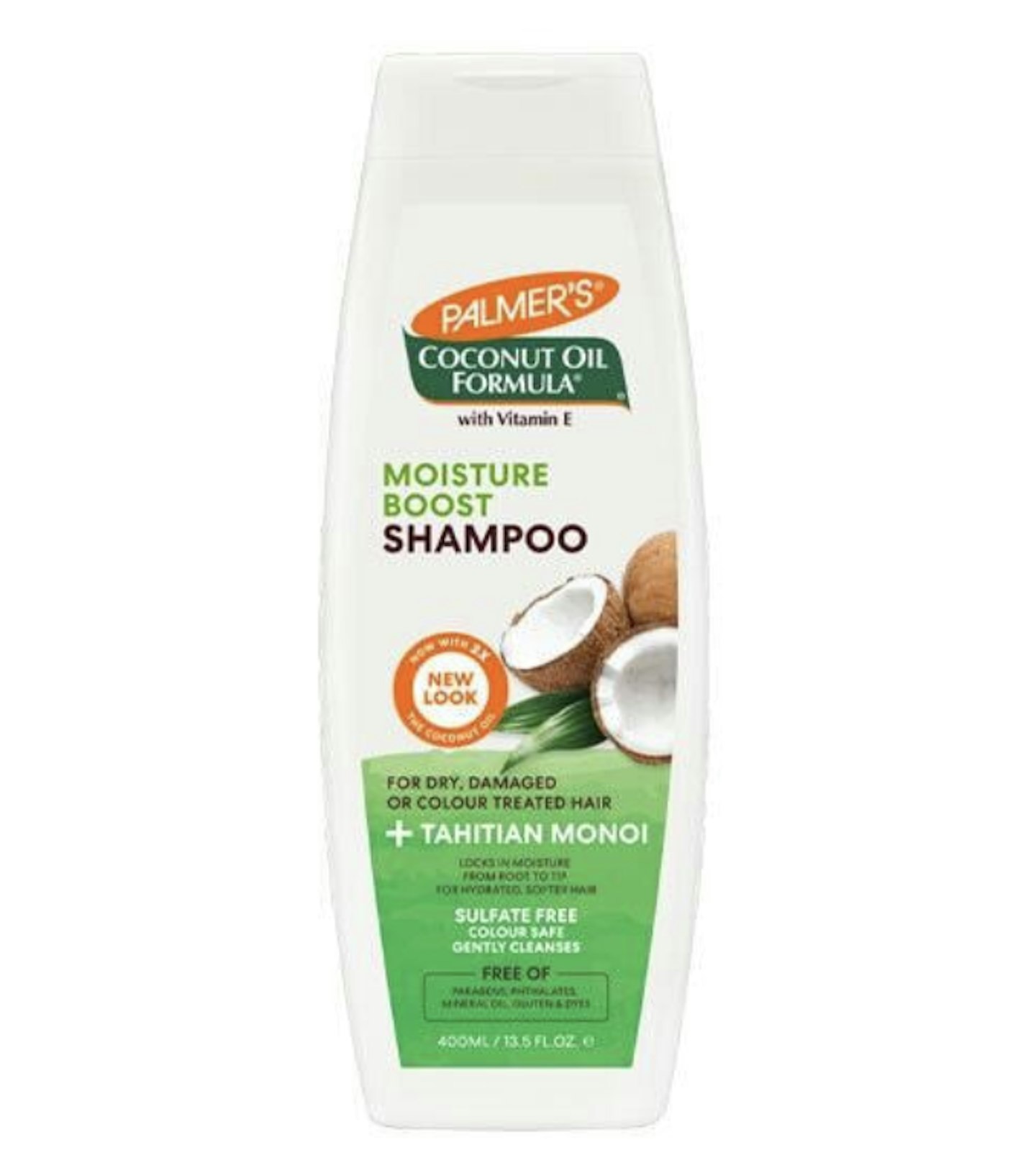 Palmer's
Palmer'swww.superdrug.com
What products should you avoid on curly hair?
Products containing sulphates have a bad rep when it comes to curly hair, they're known to strip the hair of natural oils, which is so important to keeping curls less dry.
Using products with parabens are also a no no as curly hair is easily frazzled and dehydrated and parabens will make it worse.
How to detangle curly hair on children
Rebecca Bennett, JOHNSON'S® skincare expert, says, "During the summer, the UV light from the sun’s rays can dry out hair, and with more time spent in the pool, the high concentration of chlorinated water can make hair dryer and weaker, which can cause breakage.
"Specially designed to help keep kids’ hair manageable, the JOHNSON’S® No More Tangles Kids Shampoo gently cleanses for soft and smooth hair and is formulated to unlock knots and tangles during bath time. For those stubborn knots, and for the best results, include as part of a 3-step routine (alongside JOHNSON’S® No More Tangles™ Kids Conditioner and JOHNSON’S® No More Tangles™ Kids Conditioner Spray).
"Once you're done washing and conditioning, comb the hair with a wide-tooth comb and comb from the ends of the hair first, moving upward towards the scalp – avoid using a brush on wet hair as this may cause damage."
